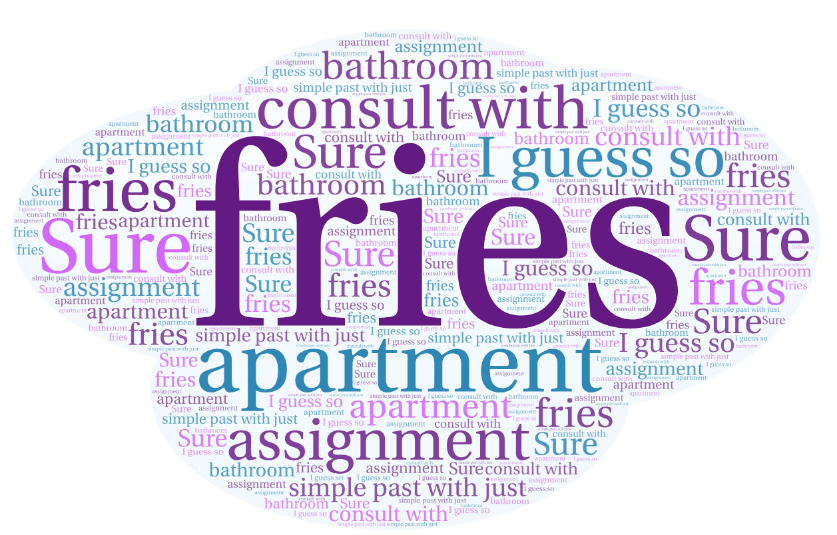In the first of our blog posts about the new edition of COBUILD English Usage, Penny Hands details some of the changes she made to the examples to ensure they reflect changes in society, and ponders on how future-proof these changes are likely to be.
One of our aims for this edition was to have a really close look at the example sentences, as our hunch was that society has changed so dramatically since the last overhaul that there would be work to do bringing things up to date.
Looking back at the brief for the last edition in 2011, I see that we were worried about authentic examples being too complex – a common criticism levelled at the COBUILD range in its earlier years, and which we were still ironing out.
As I was going through the examples, I took notes and categorised the outdated material. This would help us, I hoped, identify areas to focus on when we formulated new topic pages. These would be added to the resource to guide students and teachers in various aspects of language use that might have changed in the last ten years.
Here are the categories into which the outdated examples I identified sorted themselves:
- technology
- women
- old-fashioned language
- toilets
- American English/British English
Technology
Unsurprisingly, in the area of technology, we found a large number of examples that needed to be changed. For example:
Some tech items, such as tape recorder and portable computer were obviously outdated, but others seemed to be just starting to look anachronistic because they related to things we do less and less often.
Since one of the aims of the update was to future-proof the book to an extent, I used my gut feeling to make interventions where they might not seem to be altogether essential at the moment. Examples of such amendments were as follows (underlining shows which word was being illustrated by the example sentence):
- Is there a phone anywhere? I changed this to: Is there a place to eat anywhere round here? as asking casually for a phone didn’t seem to be something we would need to do very much these days.
- You can take money out at any branch of your own bank. I changed this to: You can take money out at any cash machine.*
- I’ll take my phone with me. I changed this to: I’ll keep my phone switched on because most people always take their phone with them; sometimes, though, we do turn our phones off, for example, if we’re in the cinema.
- clock/radio à singer/songwriter (to illustrate the of use of the forward slash)
- When you get your daily paper, which page do you read first? I changed this to: When you start up your computer, which application do you go to first?
* By the next edition, money in the form of notes – and as a result, cash machines – may well be on their way out, but I did feel that cash machines are still common enough to warrant a mention.
Women
I found numerous references to women that, while not necessarily offensive, were just starting to make me flinch a bit. In the following examples, the replacement material is shown after the arrow.
- … three beautiful young girls à … three adventurous young girls
- I think a woman has as much right to work as a man. à I think a child has as much right to respect as an adult.
- He arrived accompanied by his wife. à Children under 14 must be accompanied by an adult.
- These days more women become managers. à These days friends tend to send messages rather than call each other.
- She’s over 40 but she still dresses like a teenager. à The organisers advised people to dress appropriately.
- Every businesswoman would have a secretary if she could. à Every pregnant woman wants the best care she can get.
- Women must have equal status. à All citizens must have equal status.
Looking at the way I updated the examples referring to women gave me pause: I had frequently replaced woman/women with child/children. This prompted me to consider how things are changing from a hierarchical point of view. When we come to our next round of updates, will the examples with child no longer be acceptable? What will I need to replace them with next?
Old-fashioned language
The next category that came out of the analysis was that of ‘old-fashioned language’. Here are some of the words and phrases that jumped out.

American English/British English
Then there were the inevitable items that were labelled as Americanisms, which can hardly be referred to as such any more.

References to lavatories, ladies’ and gents’, air travel being ‘easy these days’, newsagents, letters, and an ‘Indian gentleman’ also all got reworded or expunged from the text.
So, what will future updates bring?
Much as I’ve tried to future-proof the examples, I’m going to make a perhaps rather rash prediction that all my new examples with children will have to be thrown out in ten years’ time, with dogs taking their place. But even then, anyone who has watched the TV programme ‘Supervet’, or the equivalent in their own country, and observed the status of the pet in many families, will have doubts about even that. Robot-servants, maybe?
